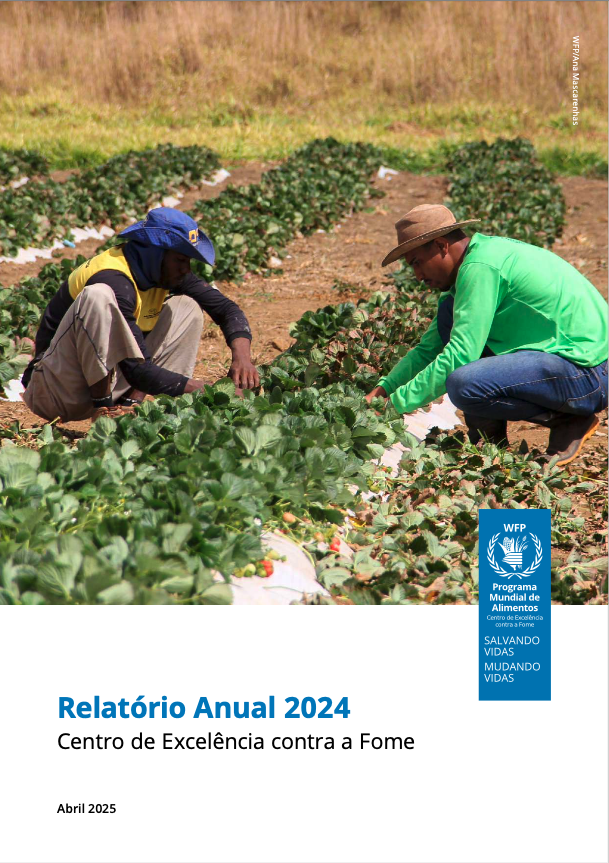
In 2024, the WFP Centre of Excellence against Hunger in Brazil participated in major international events focused on combating hunger, organized several study visits under South-South cooperation, gathered results in food security and nutrition, and hosted the winners of the reality show "Vida de Merendeira" at a meeting of Portuguese-speaking countries. The Centre of Excellence took part in the launch of the Global Alliance Against Hunger and Poverty during the G20 Social. In addressing malnutrition, officials from Brazil, Peru, and Colombia were trained; we closely followed the expansion of the school feeding program in Malawi; and supported the construction of cisterns and gardens in Kenya.
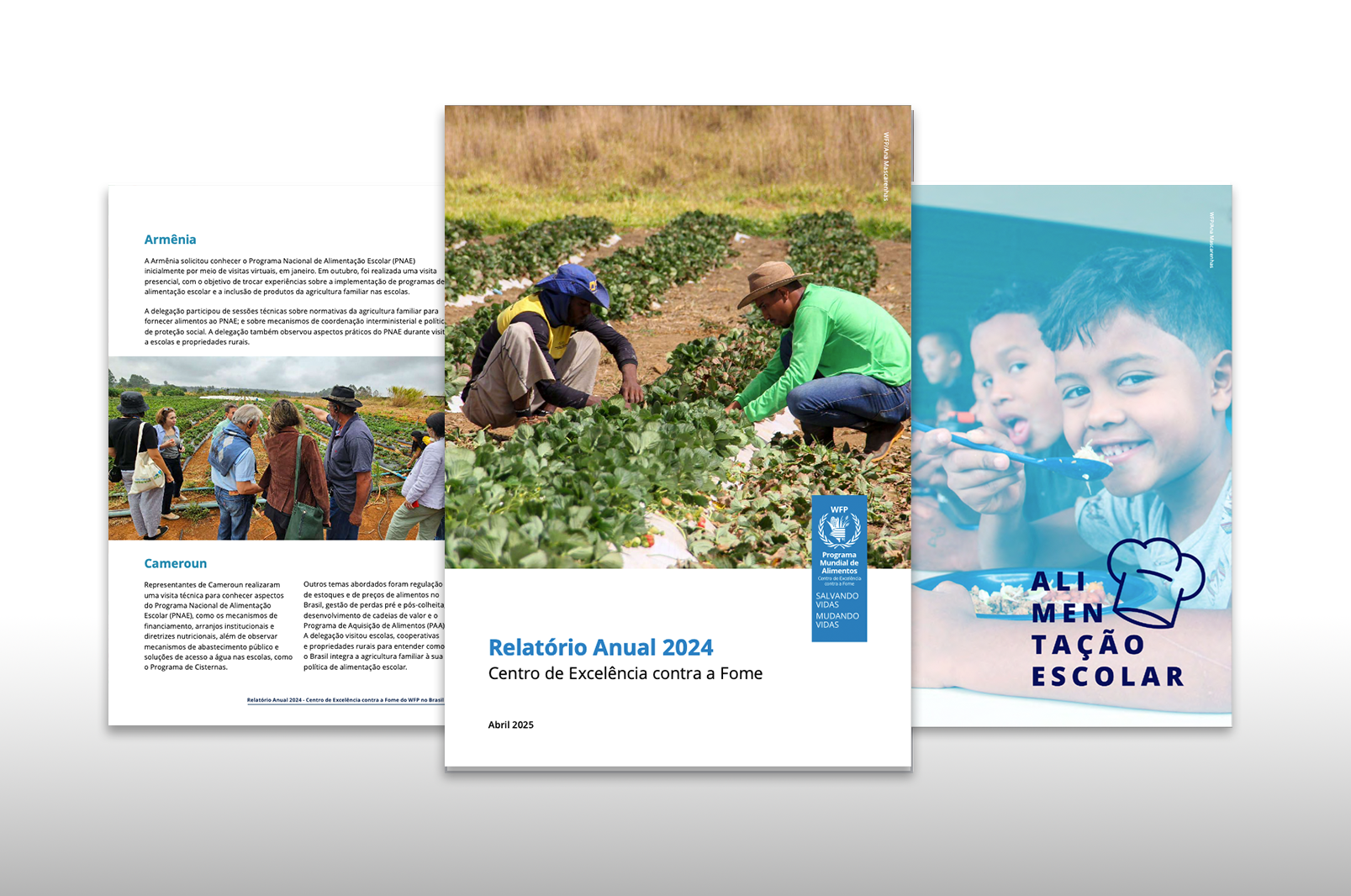 Click to download the document in Portuguese.
Click to download the document in Portuguese.
Click to download the document in English.

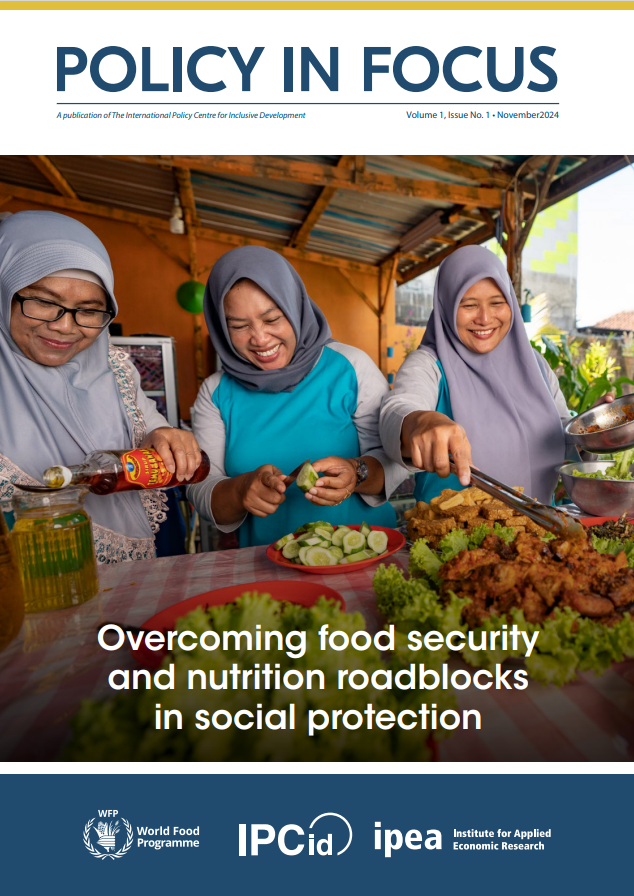
This special edition of the publication Policy in Focus, a collaboration between IPCid, the World Food Programme (WFP), and socialprotection.org, features 22 papers authored by over 50 experts from diverse institutions. It focuses on the barriers social protection systems face in achieving food security and combating malnutrition. Through case studies, expert insights, and policy analyses, the edition identifies key roadblocks such as funding gaps, political constraints, fragmented approaches, and implementation challenges. It also offers solutions to strengthen social protection systems, breaking cycles of hunger and poverty while envisioning them as a foundation for resilience and sustainable development.
 Click to download the document in English.
Click to download the document in English.

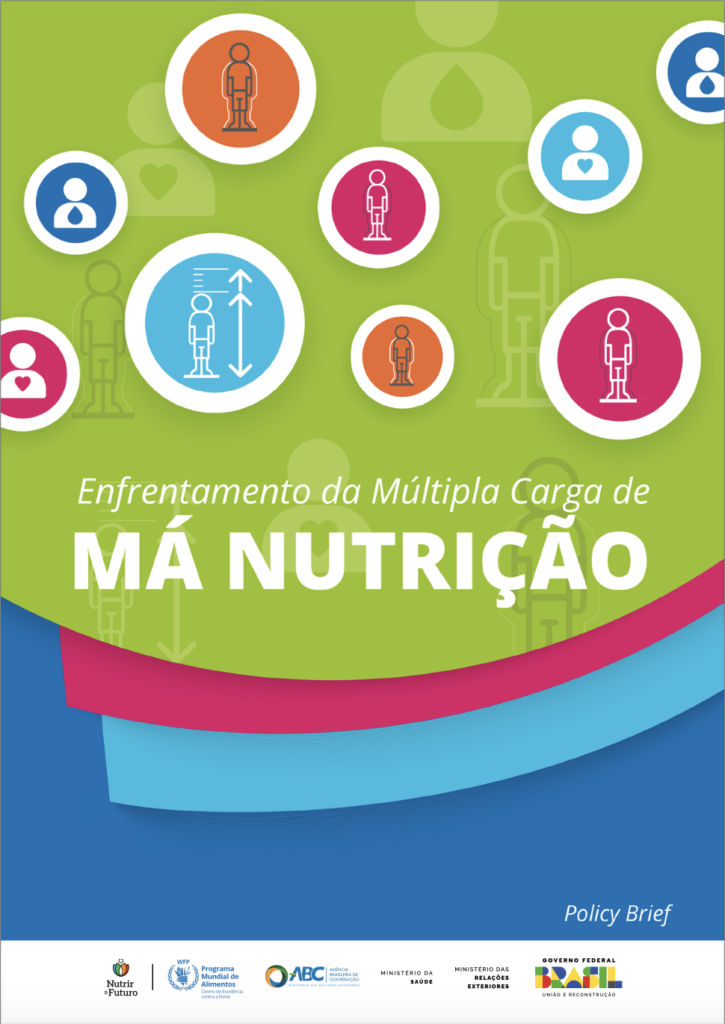
The nutritional and health situation of the population is unevenly influenced by a set of social, economic and political determinants that generate and accentuate inequalities. The multiple burden of malnutrition is a reality in certain countries and mainly affects vulnerable groups such as low-income families, women, the black population and traditional peoples and communities. This Policy Brief is a public tool of great relevance to the subject, as it provides readers with detailed information on the main theme, alternatives to mitigate malnutrition, obesity and other health problems, especially among schoolchildren, as well as supporting the strengthening of the Human Right to Adequate Food as a mechanism to reduce the consumption of poor quality food to the detriment of food and nutritional security.
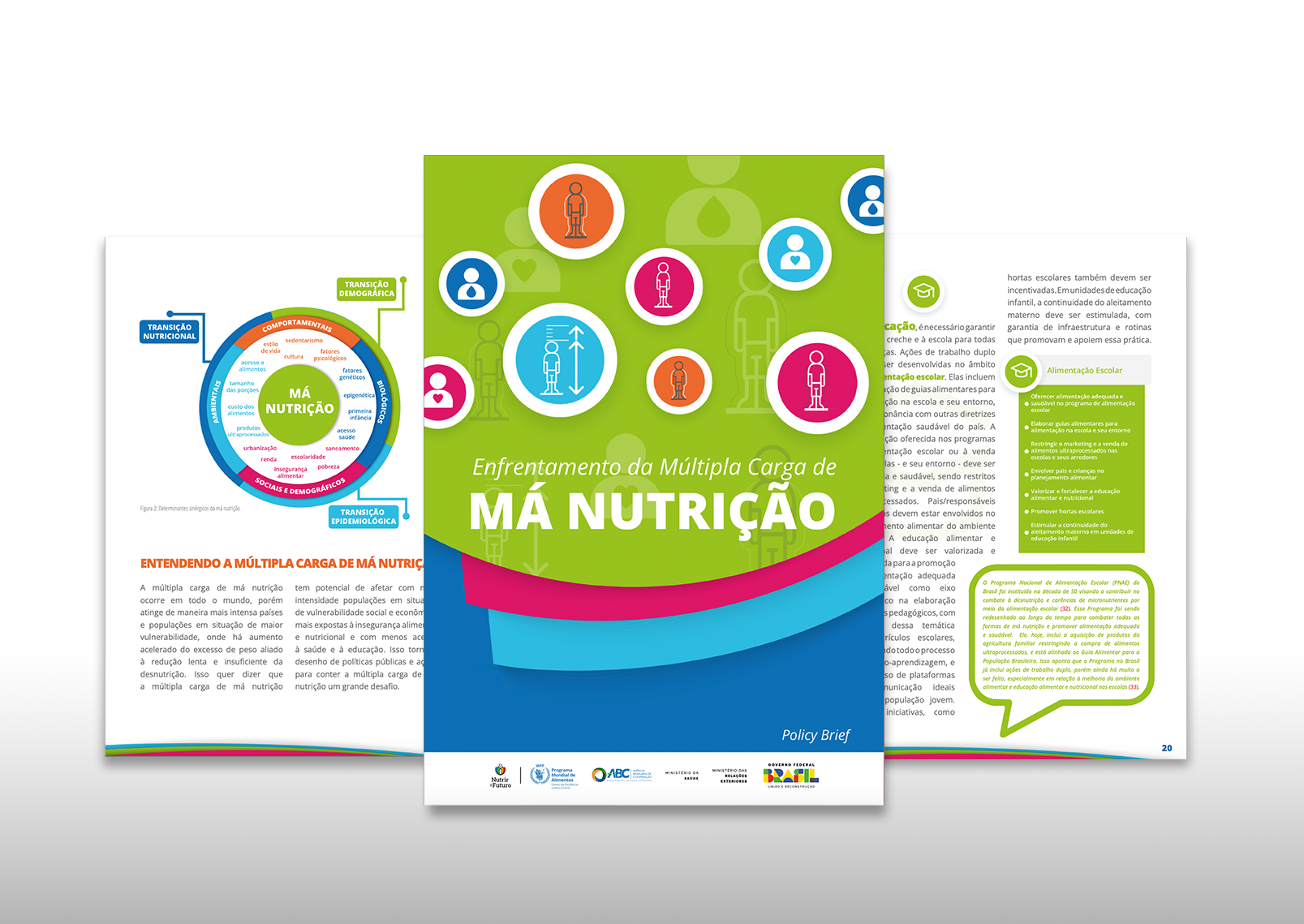 Click to download the document in Portuguese.
Click to download the document in Portuguese.

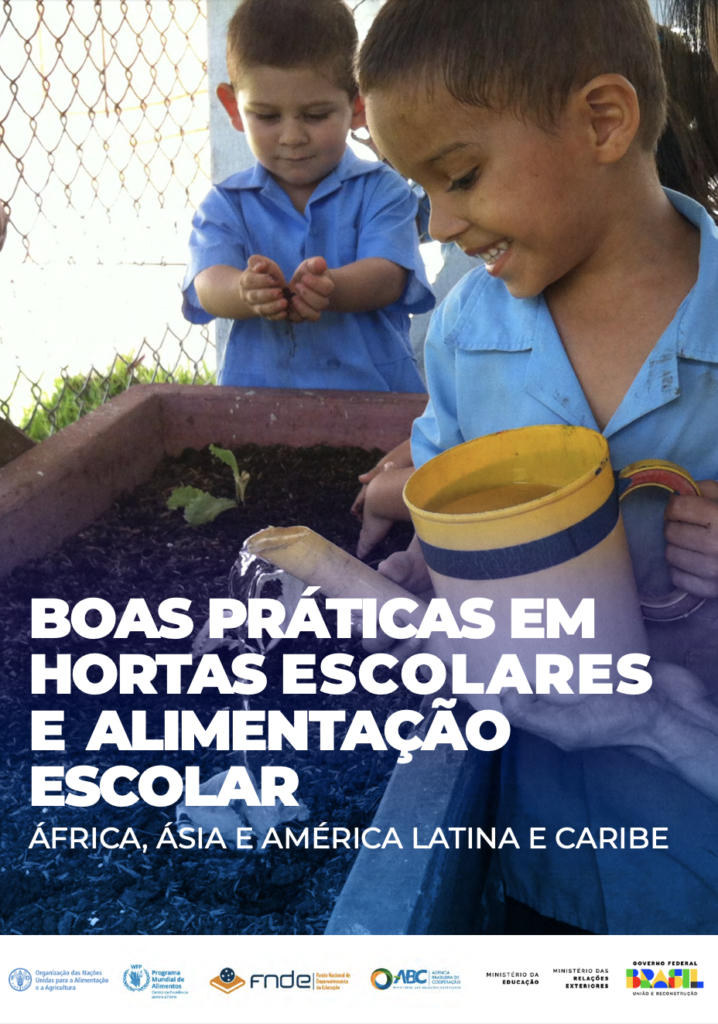
Gardens play a fundamental role in school feeding programmes, since they function as a strategic tool for food and nutrition education (FNE), contributing to the formation of healthy and sustainable eating habits for students and the entire school community. By mapping successful examples, this publication seeks to investigate how school gardens can contribute to improving these programmes and to identify good practices in management, design and implementation. The publication is the result of a partnership between the WFP Centre of Excellence in Brazil, the Food and Agriculture Organization of the United Nations (FAO), the National Education Development Fund (FNDE) and the Brazilian Cooperation Agency (ABC).
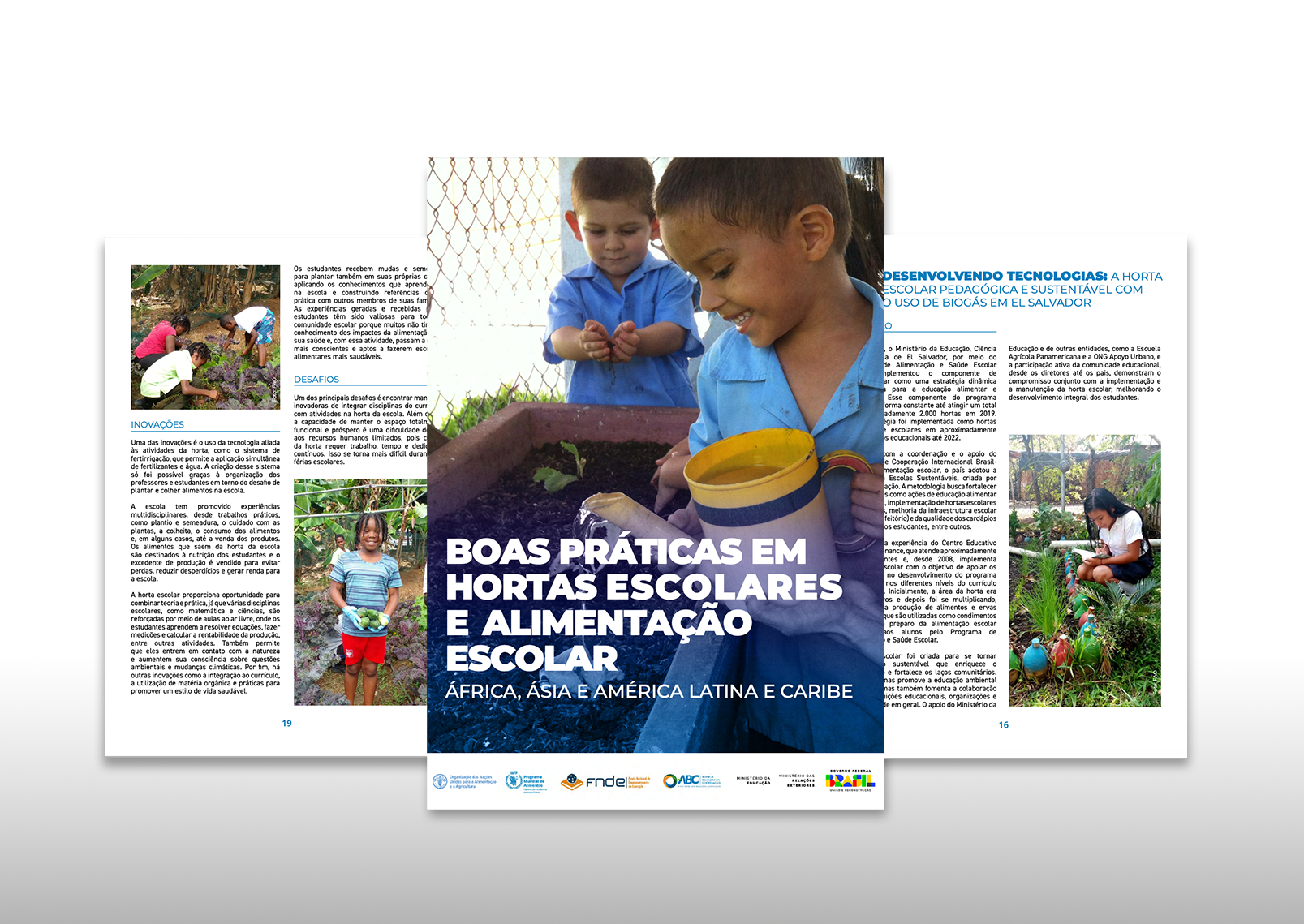 Click here to download the document in Portuguese.
Click here to download the document in Portuguese.
Click here to download the document in English.
Click here to download the document in Spanish.
Click here to download the document in French.


Brazil has one of the largest national school feeding programmes in the world, serving cooked meals daily to around 40 million students across the country. Considering the area of more than 8,000 km2 and the population of around 220 million citizens, operating and overseeing the implementation of a programme that reaches all students in the country's public basic education network certainly presents challenges. In this policy brief, we'll see what centralised and decentralised tools the Brazilian government uses to monitor the implementation of the National School Feeding Programme and accountability, including: School Feeding Councils, monitoring visits and digital monitoring and data management tools.
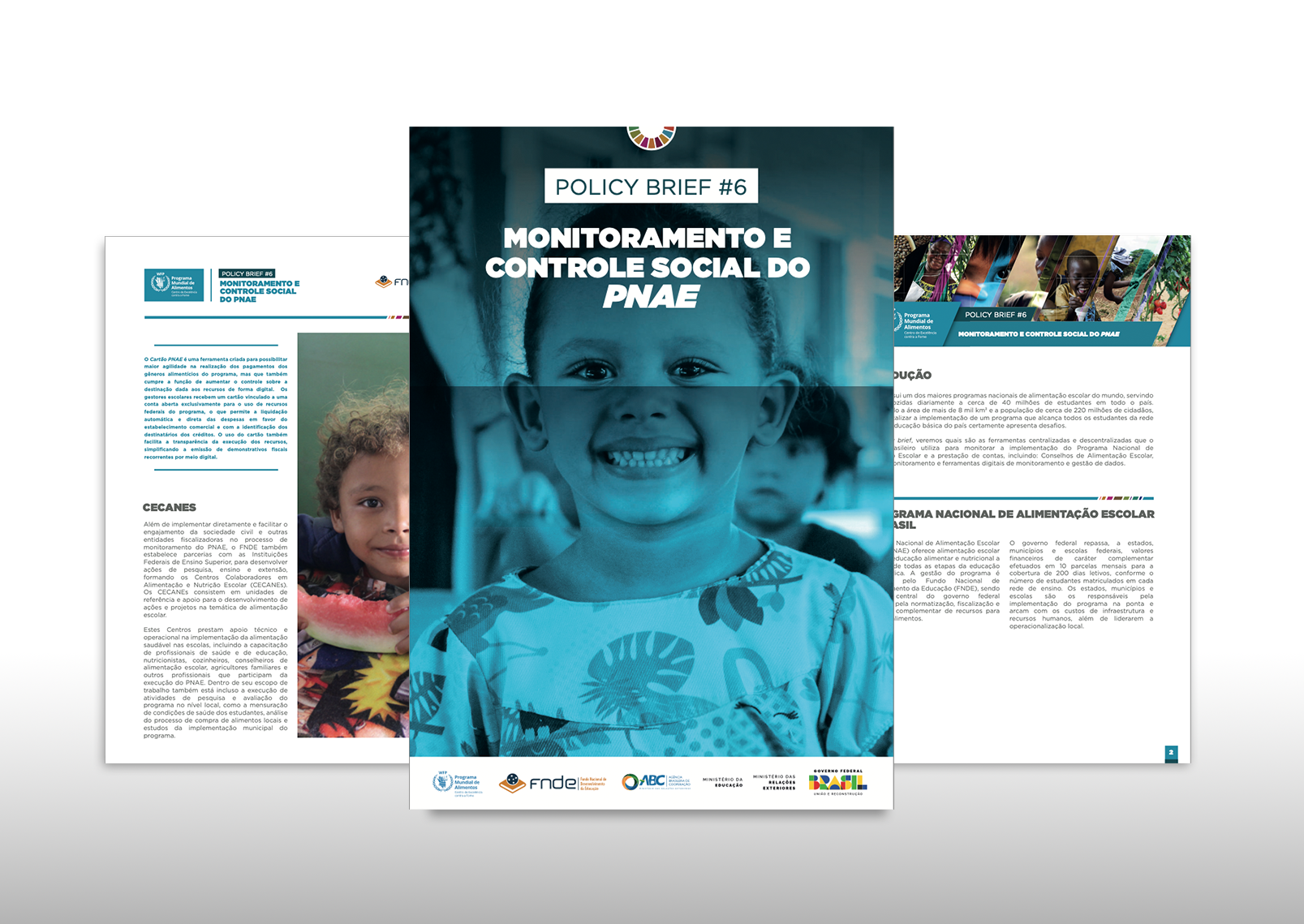 Click here to download the policy brief in Portuguese.
Click here to download the policy brief in Portuguese.
Click here to download the policy brief in English.

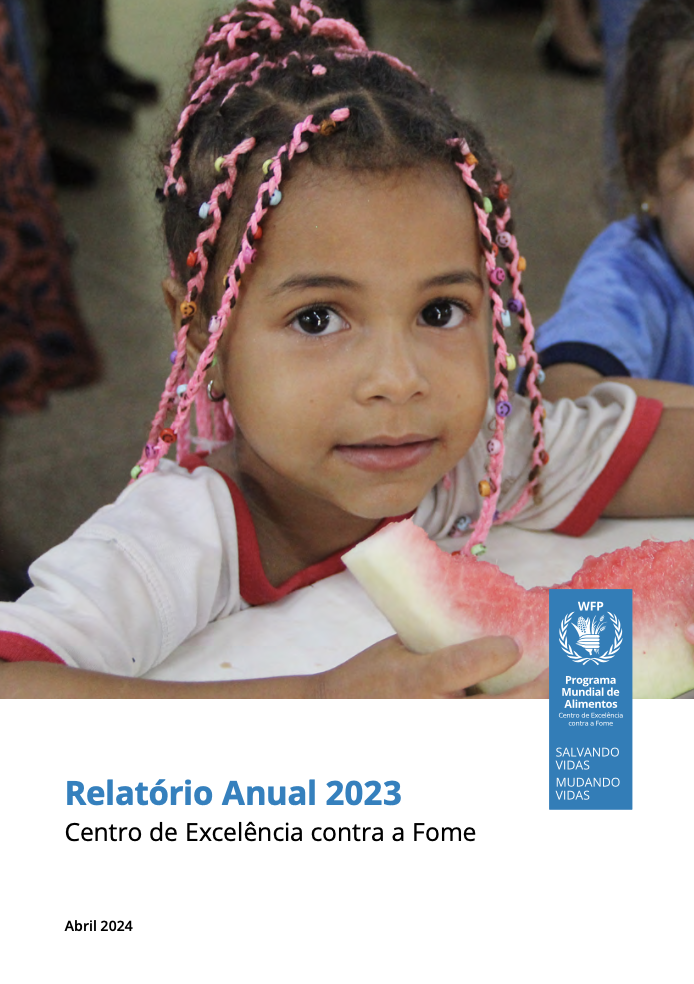
In 2023, the World Food Programme (WFP) faced growing challenges due to humanitarian emergencies exacerbated by conflicts and climate disasters, hampering its mission to save lives. Meanwhile, the life-changing development work carried out by the WFP Centre of Excellence against Hunger in Brazil gained prominence, promoting lasting solutions for food security and sustainable agriculture. In this annual report, learn how the Centre of Excellence's work supporting strategies to reduce inequalities in countries of the global South, strengthening areas such as school feeding, nutrition and family farming and establishing strategic partnerships has contributed to the achievement of Sustainable Development Goals 1, 2 and 17.
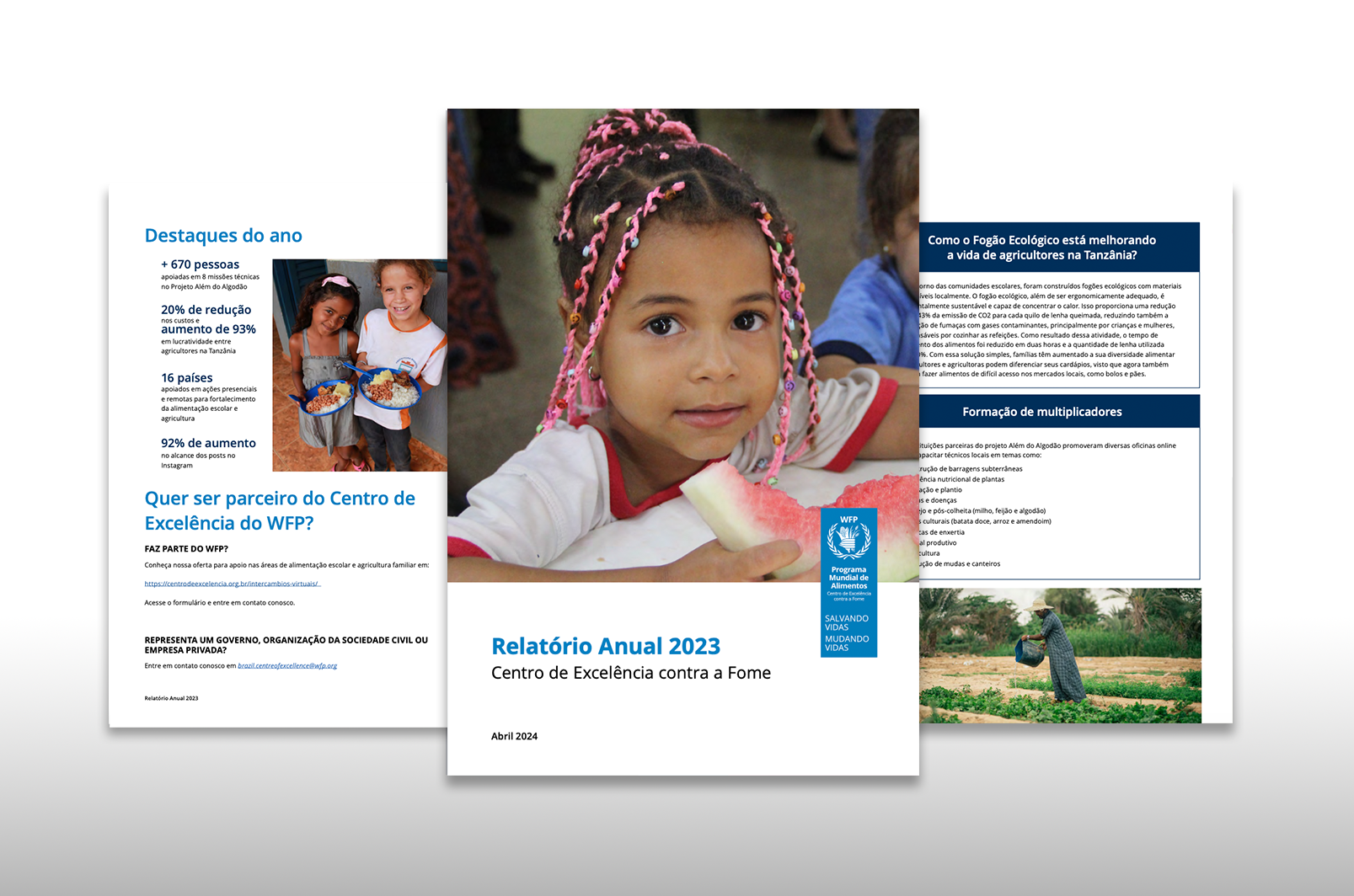
Click to download the document in Portuguese.
Click to download the document in English.

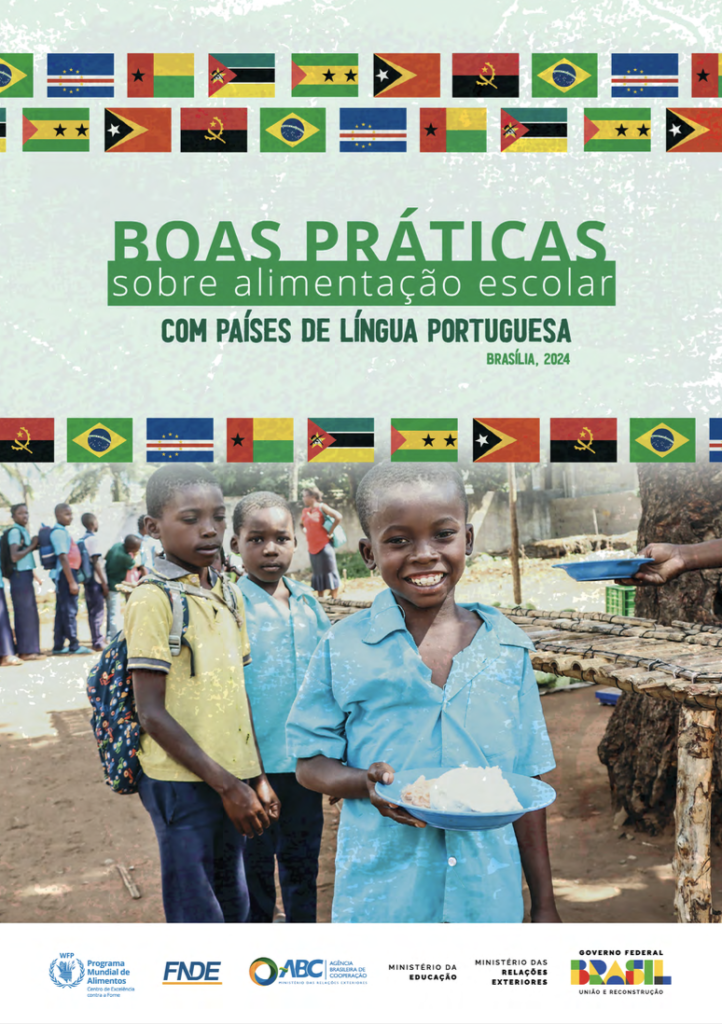
In recent years, Portuguese-speaking countries have advanced in good practices in school feeding, combating malnutrition and poverty. The World Food Programme (WFP) Centre of Excellence against Hunger in Brazil, in partnership with the Brazilian Cooperation Agency (ABC) and the National Education Development Fund (FNDE), organised three online meetings between 2022 and 2023, focused on nutrition, school feeding linked to local agriculture, monitoring and evaluation. This publication highlights key points discussed by formulators and implementers of school feeding policies, seeking to develop resilient, environmentally healthy and gender - and nutrition - sensitive programmes.
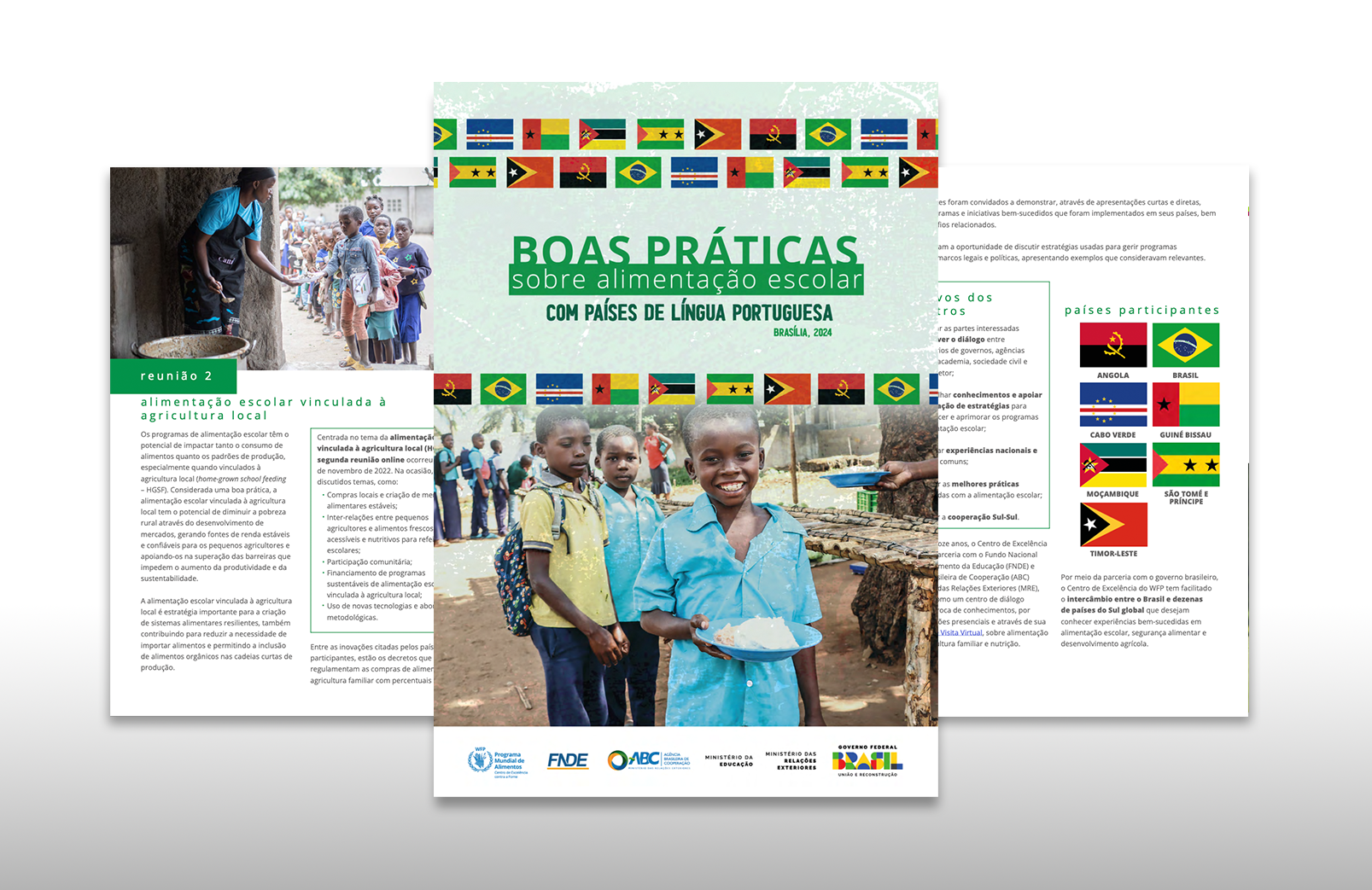
Click here to download in Portuguese.

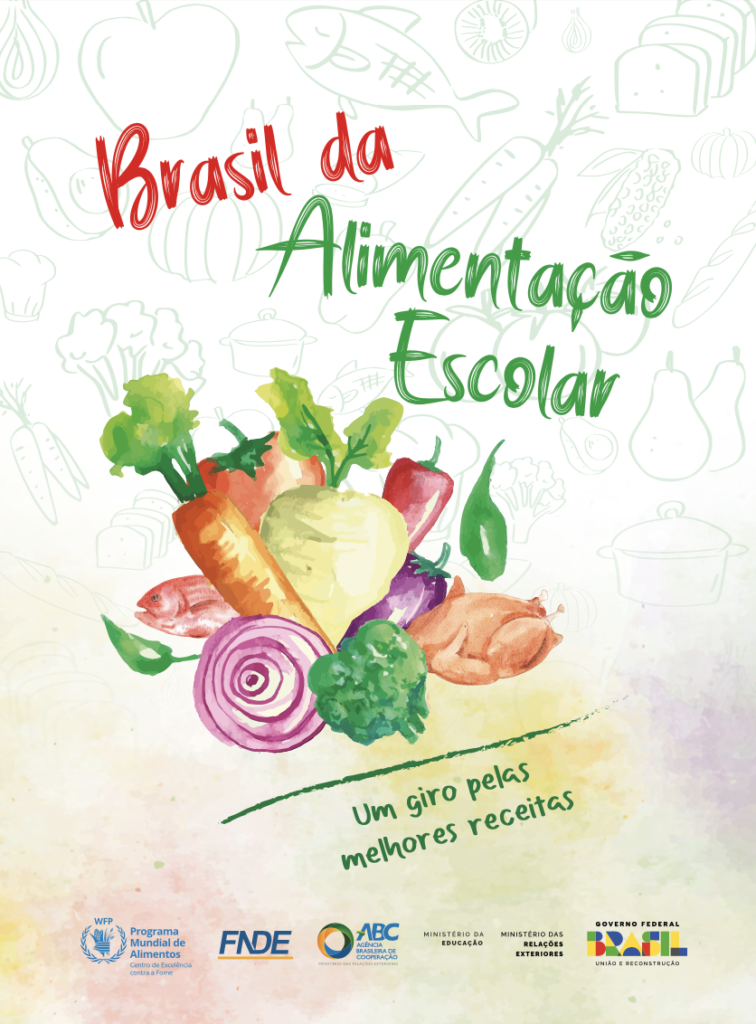
"School Feeding in Brazil: an overview of the best recipes" brings together tasty recipes served in public basic education schools in the five regions of Brazil. The dishes presented here represent the winners of the Best School Meals Recipes and Super Lunch Ladies. The book also features testimonies from cooks and nutritionists involved in the competitions, presents an overview of school feeding in the country and portrays how Brazil has inspired other nations.

Click here to download (in Portuguese).
Click here to download (in English).





